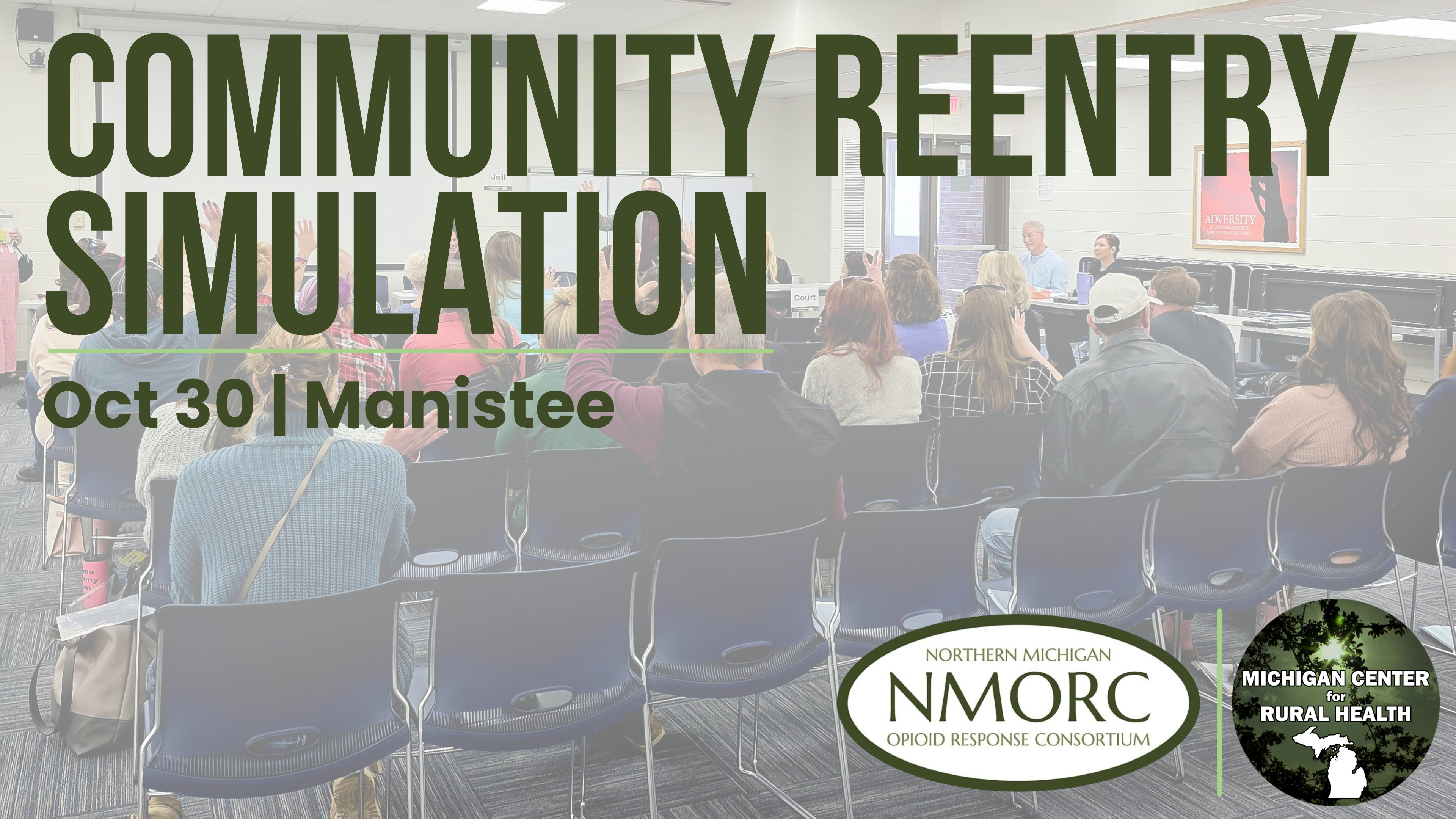Date
October 30, 2025
October
30
Stronach Township Hall | 2471 Main Street Manistee, MI 49660

The goal of these Community Reentry Simulations is for participants to gain understanding of the significant obstacles faced by individuals attempting to navigate requirements of parole/probation as well as everyday life situations after release from incarceration and returning to new or former communities. To walk in the shoes of one released from serving their time gives invaluable insight, both for professionals who are tasked with helping those individuals achieve a successful reentry as well as anyone from the community who wants to better understand this dynamic.
There are two ‘roles’ needed to make the simulation realistic. Registrants can opt to be either a “Volunteer” or “Participant”.
Volunteers fulfill the role(s) of the ‘people behind the counter’ at the 14 stations representing social services, work, shops, transportation, rent, etc. Participants assume an identity of someone being newly released from incarceration. They receive a storyline explaining time spent incarcerated, education level, living arrangements to which they will return, and possessions they may have accumulated or had before incarceration. Each week they must complete required or court-ordered tasks in addition to their normal activities of daily living to stay compliant with their parole.
Through this exercise, attendees become acutely aware of the barriers that make reentry so much harder than need be. Participants actually ‘feel’ the anxiety of the person who must navigate the complex system, and many are overwhelmed with the demands placed upon them. These feelings promote a calling to ‘fix these problems’ which is exactly what this simulation hopes to impart. After the simulation a discussion on how communities can come together to divert persons with Behavioral Health challenges (mental health and/or substance use disorder) onto a path of treatment and counseling instead of or in addition to incarceration is initiated. It is centered on the evidence based “Sequential Intercept Model”.
People with Behavioral Health challenges can and DO recover. However, uncoordinated and inadequate treatment and support services can inhibit the pursuit of recovery and can lead to criminal justice/criminal legal involvement. Using the evidence based Sequential Intercept Model (SIM) as a platform for discussion, the community is able to better understand organizational barriers. In conjunction with the CRS, this short discussion time is not sufficient to fully explore the possibilities, but a full SIM Mapping Workshop can be the next step.
Creating an interactive, facilitated process through a SIM Mapping Workshop will help cities and counties determine how people with mental illness and co-occurring substance use disorders (Behavioral Health challenges), flow from the community, into the criminal justice system, and eventually return to the community. The daylong session brings together subject matter experts in local governance to map the local systems, identify gaps in services and identify potential local resources. The overarching goal of this is to foment collaboration that promotes coordinated, integrated, and comprehensive services. System transformation is possible when communities act by establishing cross-system partnerships that include peers and providers at all levels of decision-making.
While a SIM Mapping Workshop provides a snapshot of the situation that clearly outlines gaps. Taking Action for Change is the final step in the process that helps communities identify top priorities for change and create a local action plan.
The combination of these powerful exercises helps take a community from good intentions and launch it into its own trajectory for systems change, transforming services so that they truly support recovery and enhance community safety. BONUS: Offering these pathways could help our jails and correctional facilities combat overcrowding as well as provide better care for incarcerated person(s).
The Sequential Intercept Model (SIM) was developed by Policy Research Associates. In August 2025, the Northern Michigan Opioid Response Consortium (NMORC), a Health Resources and Services Administration grant-funded program under the Michigan Center for Rural Health, offered SIM training in the 25 county region. The training will allow attendees to conduct workshops throughout Michigan.
For more information on how to bring this series or any step in the series to your community, please contact:
Jeanne Marriott, Project Associate, Northern Michigan Opioid Response Consortium | jeanne.marriott@affiliate.msu.edu
Date
October 30, 2025
Time
10:00 AM - 2:00 PM
Location
Stronach Township Hall | 2471 Main Street Manistee, MI 49660